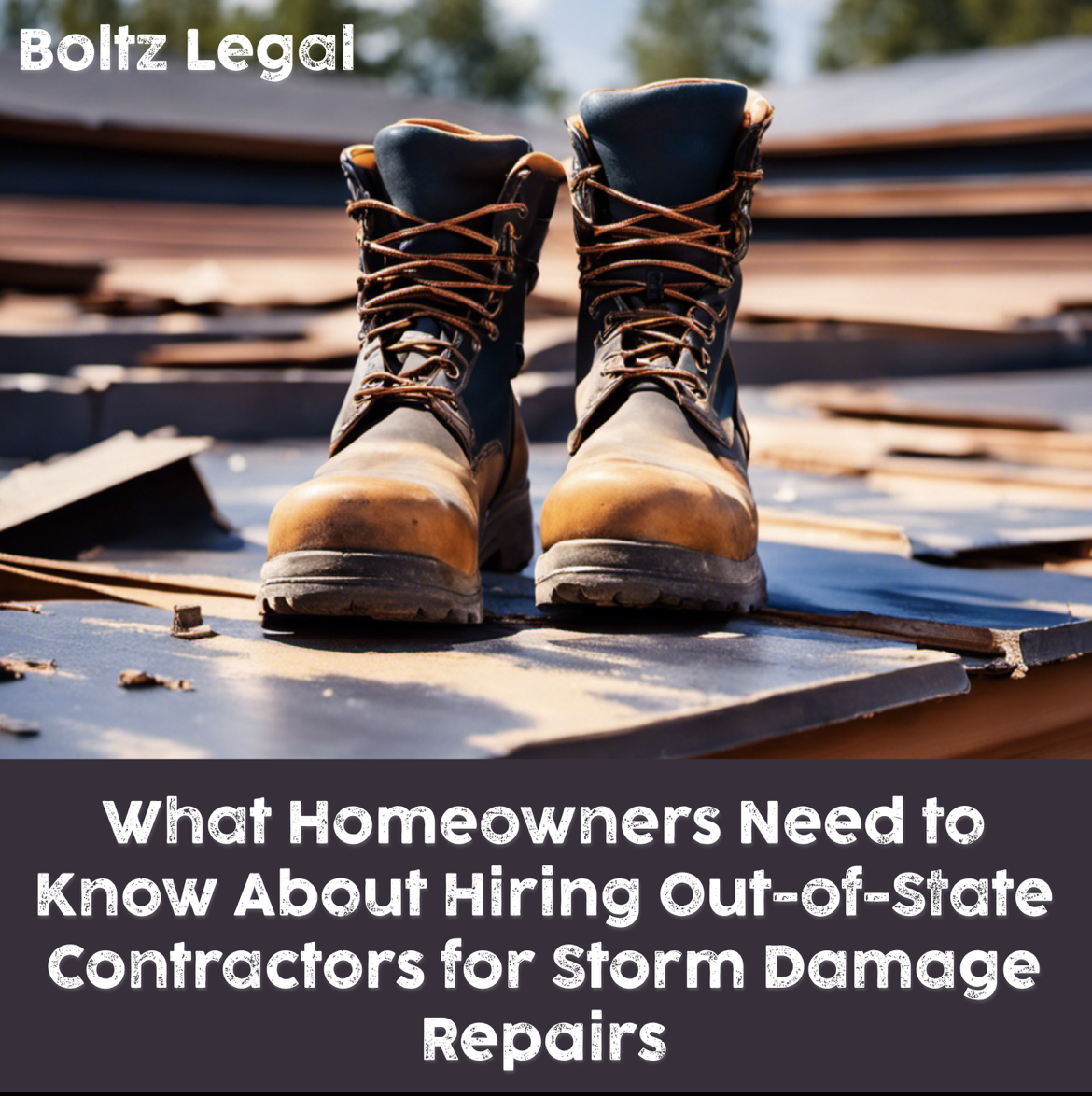Blog
We're here to provide resources you need to stay informed and understand more about your situation.
What Homeowners Need to Know About Hiring Out-of-State Contractors for Storm Damage Repairs.

In the wake of natural disasters, an Executive Order often grants state agencies various flexibilities to deal with the emergency at hand more efficiently. While such measures are crucial for a speedy and effective response, they can also inadvertently create opportunities for less-than-reputable contractors to capitalize on a vulnerable situation. This is especially pertinent when it comes to out-of-state contractors who may possess a Florida license but aren’t locally based, making them potentially hard to hold accountable.
Why Caution is Necessary
When storms hit and cause extensive damage, repairs become an urgent necessity. The waiver or suspension of certain regulations means that an influx of contractors—both local and from out of state—can enter the market to meet this sudden demand. While many are professional and qualified, others may offer subpar workmanship, poor materials, or even fraudulent services.
Steps to Protect Yourself
Here are some precautionary steps homeowners can take when hiring a contractor for storm damage repairs:
- Verify Credentials
Even if some registration requirements are temporarily relaxed, always ask to see a contractor’s credentials, certifications, or proof of prior work. You should also check that the contractor has appropriate insurance.
- Obtain Written Estimates
Before agreeing to any work, get a written estimate that outlines the scope of the work, the materials to be used, and a timeline for completion. This written agreement can be vital if you need to settle a dispute later.
- Check References
References are especially critical for out-of-state contractors. Ask for and follow through with contacting these references to confirm the contractor’s reliability and quality of work.
- Consult Local Authorities
Local or state offices can provide information on whether there have been complaints or legal actions against a contractor. Online reviews can also be helpful, although they should not be your sole resource.
- Document Everything
From initial estimates to final payments, keep records of all interactions and transactions with your contractor. This could prove invaluable if issues arise later.
- Be Cautious with Payments
Be wary of contractors who demand full payment upfront or who prefer cash transactions. Always ask for an invoice and keep a record of payments.
- Availability for Follow-Up
This is particularly relevant for out-of-state contractors. Make sure to discuss how they intend to manage any follow-up or repair work that might be needed in the future.
- While Executive Orders aim to make emergency responses more efficient by removing bureaucratic obstacles, they can also expose consumers to risks. However, by doing diligent research and maintaining vigilance, homeowners can protect themselves and ensure that they hire contractors who are both qualified and reliable. It’s crucial to balance the need for quick repairs with the necessity of making wise, thoughtful choices.